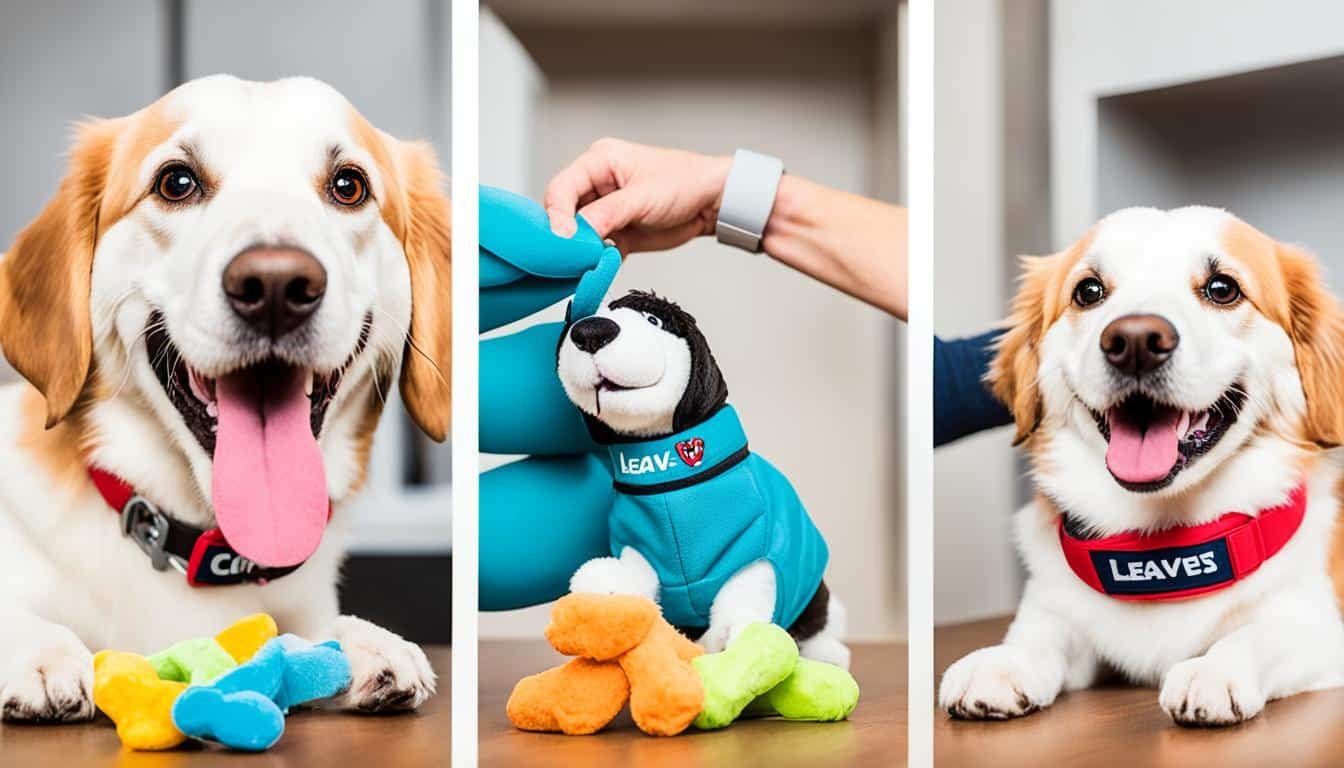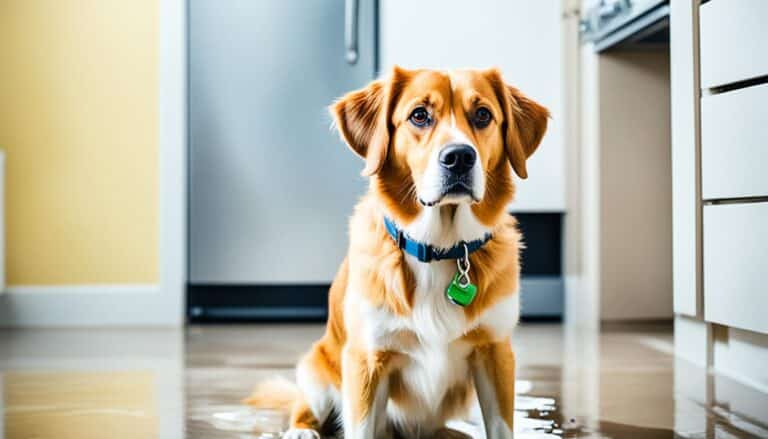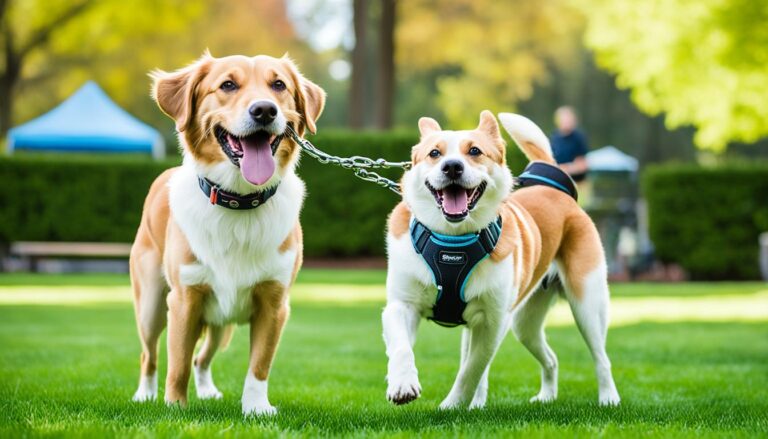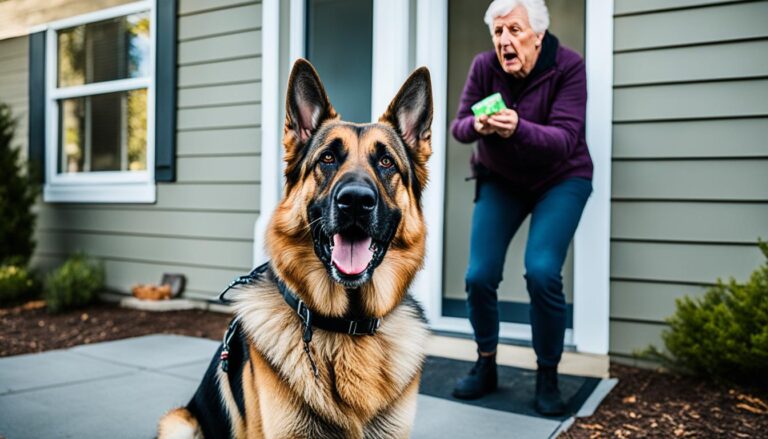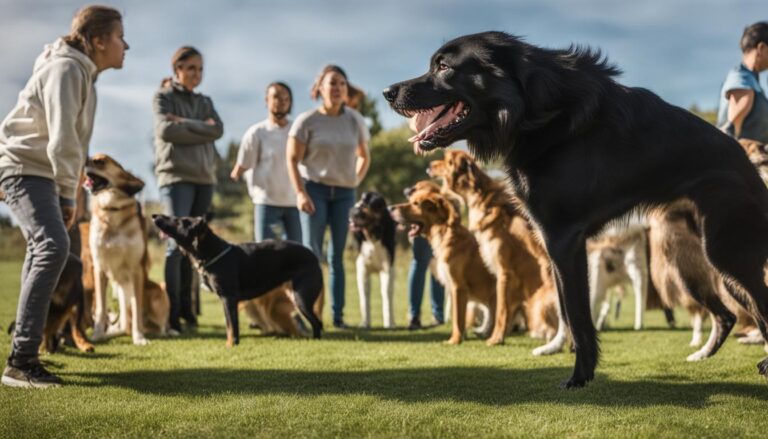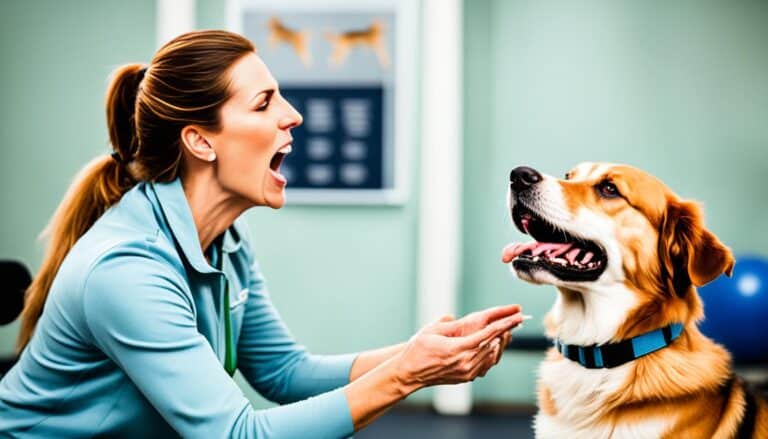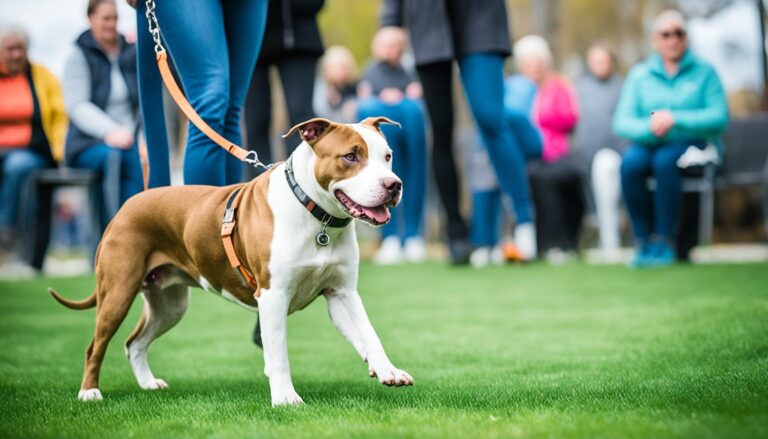How to Train a Dog to Stop Biting
Having a dog is a joyful and rewarding experience, but sometimes, our furry friends may exhibit unwanted behaviors, like biting. If you’ve ever been on the receiving end of a painful puppy nip, you know just how important it is to teach your dog to stop biting. Not only can biting be painful for us, but it can also be dangerous for others, especially if the behavior escalates.
But don’t worry! With the right training, patience, and consistency, you can help your dog overcome their biting habits and establish appropriate behavior. In this article, we will explore some valuable tips and effective methods to prevent and address dog biting at home, ensuring a safe and harmonious environment for everyone involved.
Now, let’s dive into some practical strategies to train your dog and put an end to biting once and for all!
Understanding the Difference Between Playful Mouthing and Aggressive Behavior
When it comes to understanding your dog’s behavior, it’s crucial to distinguish between playful mouthing and aggressive biting. Playful mouthing is a normal behavior commonly observed in puppies and young dogs. It is usually accompanied by a relaxed body and a playful expression on their faces.
On the other hand, aggressive biting is a behavior that should be taken seriously. It is often characterized by a stiff body posture and tension in the facial muscles. Aggressive biting can be a sign of underlying aggression issues and should be addressed promptly.
Positive reinforcement and reward-based training methods have proven to be effective in modifying dog behavior, including aggressive biting. By using these techniques, you can help your dog learn appropriate ways to interact without resorting to biting.
If you notice your dog exhibiting aggressive biting behavior, it is advisable to seek professional help from a certified behaviorist or trainer. They have the expertise and experience to assess the situation, provide behavior modification strategies, and ensure the safety of both your dog and the people around them.
Remember that addressing aggressive behavior requires patience, consistency, and expert guidance. By understanding the difference between playful mouthing and aggressive behavior and utilizing positive reinforcement techniques, you can help your dog develop appropriate social skills and ensure a harmonious relationship between you and your furry companion.
Teaching Bite Inhibition and Gentle Mouth Behavior
Bite inhibition is a vital skill for dogs to learn in order to control the force of their bites. One effective way for puppies to develop bite inhibition is through play with other dogs. During these interactions, puppies learn to moderate their bites to avoid causing harm to their playmates.
As a responsible pet parent, you can also play a role in teaching your puppy bite inhibition. When your puppy bites too hard, make a high-pitched “ow!” sound to signal that it hurt. This helps them understand that their bite was too strong, and they will learn to be gentler in future interactions.
Providing your puppy with appropriate chew toys is another way to encourage gentle mouth behavior. Whenever your puppy chews on the toys instead of biting on other objects or people, reward them with treats and verbal praise. This positive reinforcement reinforces their good behavior and encourages them to continue chewing on the toys instead of your belongings or hands.
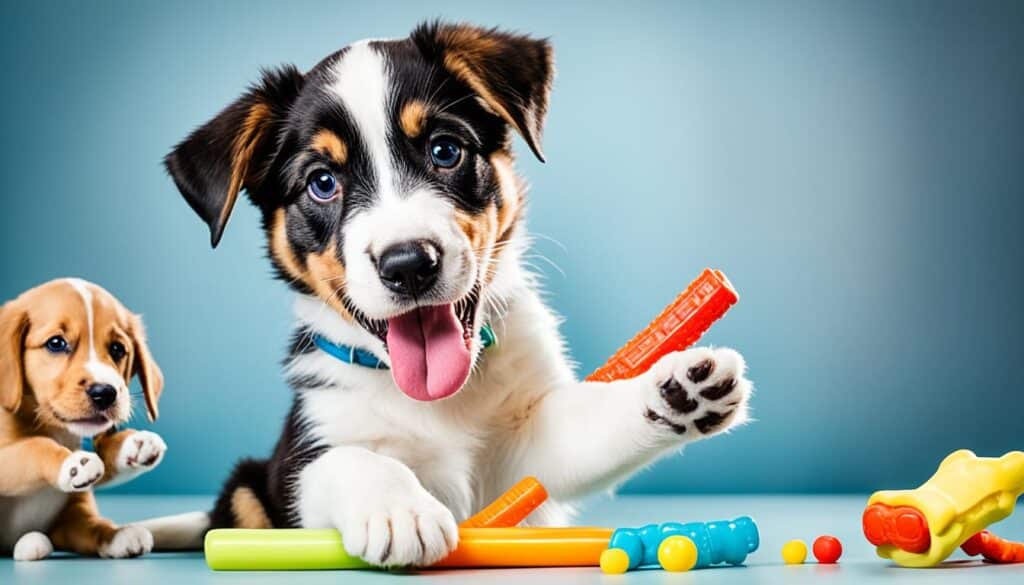
Remember, it’s crucial to avoid any form of physical punishment or hitting when teaching bite inhibition and gentle mouth behavior. Physical punishment can have negative effects on your dog’s behavior, trust, and overall well-being. Instead, focus on positive reinforcement and reward-based training methods to achieve the desired results.
Reducing Biting through Redirecting and Calming Techniques
To prevent and reduce biting behaviors in puppies, it’s important to provide them with appropriate outlets for their chewing and energy. By redirecting their attention and creating a calm environment, you can deter biting and promote positive behavior.
A great way to discourage biting is to keep chew toys readily available. When your puppy starts to nip at hands or furniture, redirect their focus to the toys instead. This helps them understand what is acceptable to chew on and what is not.
If your puppy becomes overly excited and starts biting, it’s crucial to handle the situation calmly and gently. Gradually remove them from the situation and give them a chance to calm down in their crate or a separate quiet space. This not only teaches them to self-regulate their emotions but also prevents them from associating biting with any form of punishment.
Exercise and mental stimulation are also key factors in reducing biting tendencies. Make sure your puppy gets plenty of physical exercise through daily walks and play sessions. Additionally, provide them with puzzle toys or interactive games that engage their minds. A tired and mentally stimulated pup is less likely to engage in destructive chewing and biting behaviors.
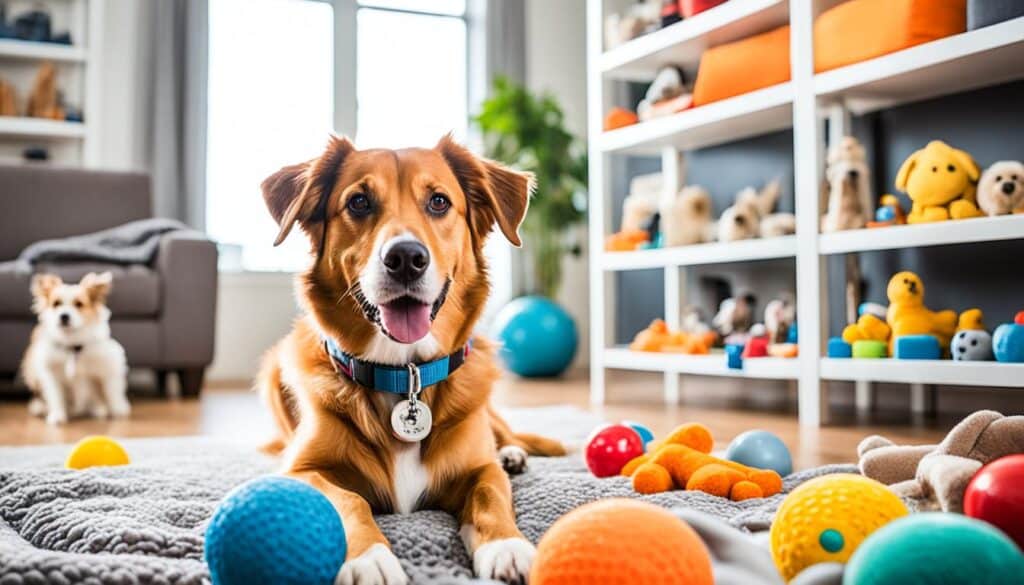
By implementing these professional dog training tips for biting and redirecting their chewing behavior, you can help your puppy develop into a well-behaved and non-aggressive adult dog.
Seeking Professional Help and Additional Tips
If the biting behavior of your puppy persists despite your efforts with home training methods, it may be time to seek professional help from a certified dog trainer or behaviorist who specializes in dog aggression and behavior modification. These experts have the knowledge and experience to assess your dog’s specific biting issues and provide personalized guidance and techniques to address them effectively.
In addition to professional help, attending puppy classes or obedience classes can offer valuable socialization opportunities and further enhance your dog’s training. These classes provide a structured environment where you and your puppy can learn from experienced trainers and interact with other dogs and owners, helping to improve your dog’s behavior and overall manners.
Remember, patience and consistency are key when it comes to training your puppy. It may take time for them to fully understand and internalize appropriate biting behavior. In the meantime, reinforce desired behaviors by offering praise, rewards, and positive attention when your dog exhibits good behavior. Avoid using punishment or physical force, such as hitting, as these can have detrimental effects on your dog’s well-being and can escalate aggression.
By seeking professional help, attending classes, and maintaining a consistent approach, you can effectively train your puppy and address their biting behavior. With time, patience, and the right guidance, your dog can become a well-behaved and happy companion.
